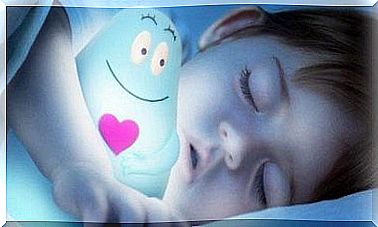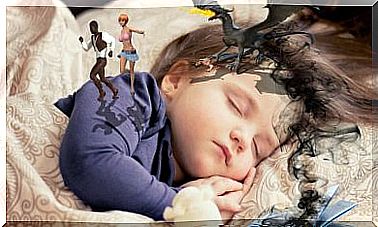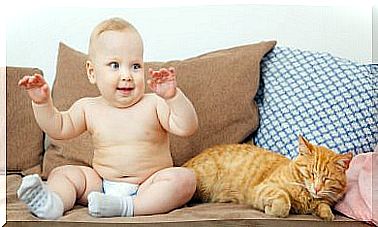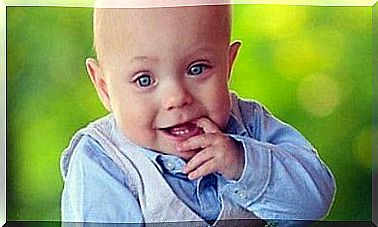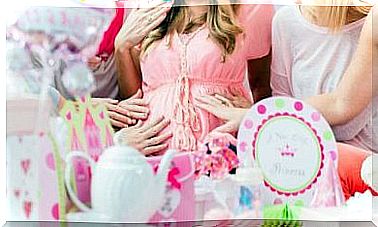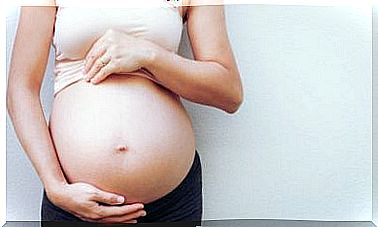Baby Teeth Injuries: What To Do?
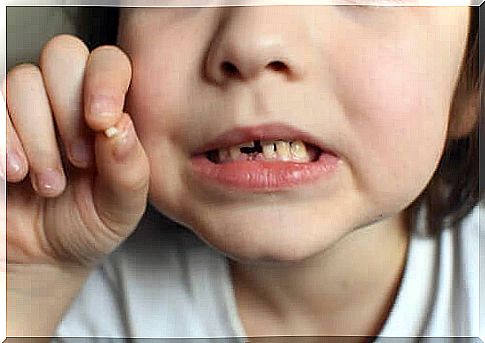
Injuries to baby teeth happen quite frequently among children. This is because there are several factors involved. In the case of younger children, they still lack stability and safety when walking, and among older children, it is often their recklessness that makes them less cautious and have occasional trauma.
Injuries to teeth in children do not have the same impact as injuries to teeth in adults. This is because children still have baby teeth, which are not permanent. So, next, we’ll talk about what to do if a child suffers trauma to baby teeth.
What are baby teeth?
Baby teeth are teeth that appear in childhood. They will not be permanent, as they will be born in the baby when he is around one year old, and will begin to fall off around seven or eight years old.
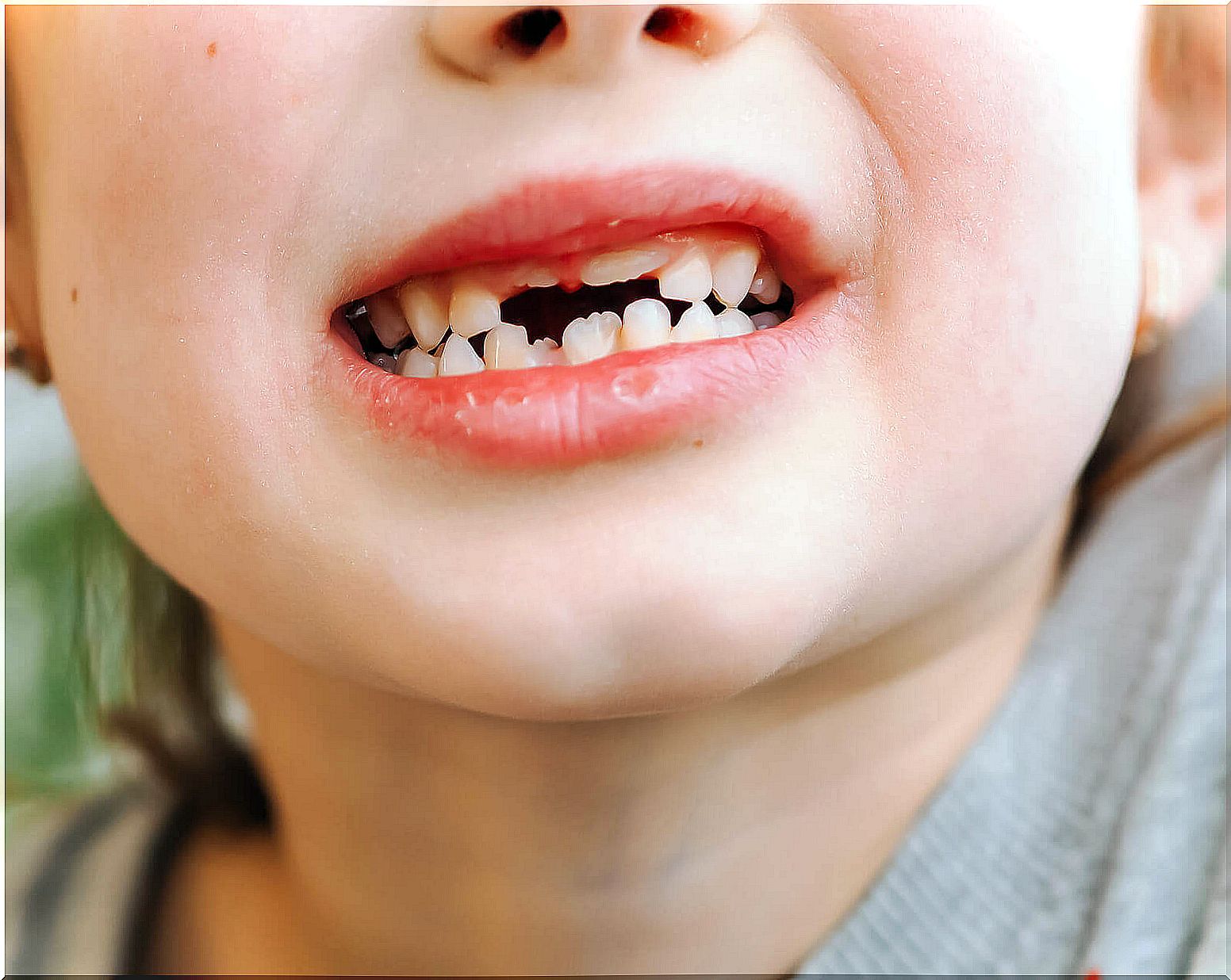
Baby teeth are very important at this stage, as they are necessary for the child to chew and vocalize correctly. They also allow her to feel safe to smile and interact with other people. Therefore, maintaining good health, hygiene and monitoring of baby teeth is essential during childhood.
When do baby teeth injuries occur?
On the one hand, it is common for children to fall while they are learning to walk. The baby still does not have enough stability and it is easy that, as it becomes more secure, it ceases to be careful and ends up suffering some trauma. This phase usually coincides with the appearance of teeth and, therefore, it is a particularly delicate time.
On the other hand, children a little older, around 6-7 years old, start to be more reckless. Your games become faster and more worry-free. They run, climb and jump. Furthermore, since they are no longer babies, parental surveillance is no longer so intense. Therefore, at this stage, trauma and accidental falls are also very frequent, and not only affect the teeth.
Most of the time, injuries to the teeth occur while the child is running or playing or, also, when he is playing a sport.
How to act?
There are many blood vessels located throughout the mouth. That’s why trauma to the teeth can damage many of them and cause significant bleeding which, mixed with saliva, makes the trauma look more serious than it really is.
So first of all, when a child is traumatized, we should calm him down and rinse his mouth gently so that we can examine the real damage. So there are several possible scenarios:
- All teeth are in place and undamaged. In that case, over the next few days, we should just watch carefully if everything remains the same.
- Lack of complete dental parts. If this happens with baby teeth, we should not try to reposition any of the pieces that have fallen out, as we could damage the germ of the permanent tooth that is still forming. In these cases, it will be necessary to wait until this tooth appears.
- Fragments missing from one or more teeth. If we find the missing piece of tooth and keep it clean and well protected, the dentist may be able to rebuild it in some cases. So, we will have to go to the dentist with the fragment so that he can decide how to act.
- All teeth are in place, but one or more of them move. If this happens, we should go to the specialist to determine the severity and whether the bite was affected.
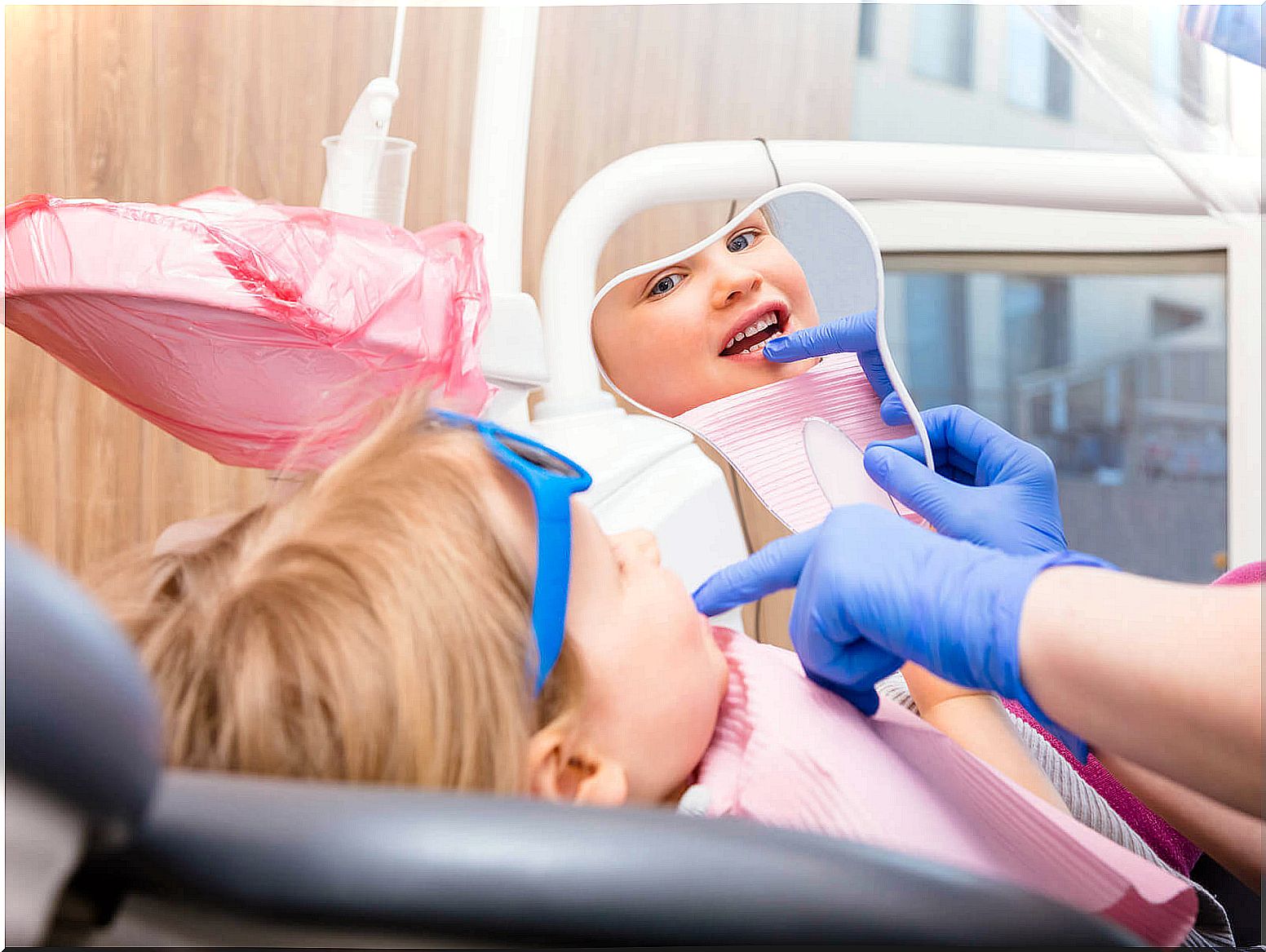
After inspection of the mouth, upon discovering any of the points mentioned above, it will be necessary to look for a specialist to check the child’s mouth and teeth again, in a more thorough way.
Care after trauma
It is possible that, during the days following the blow, the child will report pain or discomfort in the mouth, depending on the severity. Thus, we will have to make sure that good oral hygiene is done, but in a very careful way, in case there are more sensitive areas. We can also make the process easier by offering the child soft foods that don’t require a lot of effort to chew, at least for a few days.
Also, if the trauma has been severe, the child may need to take painkillers and even antibiotics for a few days to relieve the pain and to prevent infections from occurring. In these cases, it is the specialist who will establish the most appropriate treatment.
As for injuries to baby teeth, you should know that…
Injuries to baby teeth are very common, especially during the first year of life and also later, when children begin to loosen up in games. Fortunately, in most cases, the damage is not too severe and the after-effects are rare.
As always, the important thing is to act as quickly and efficiently as possible. In addition, in case of any sign of alarm, it is advisable to go to a specialist, who will be able to diagnose and treat the child in the most appropriate way.

